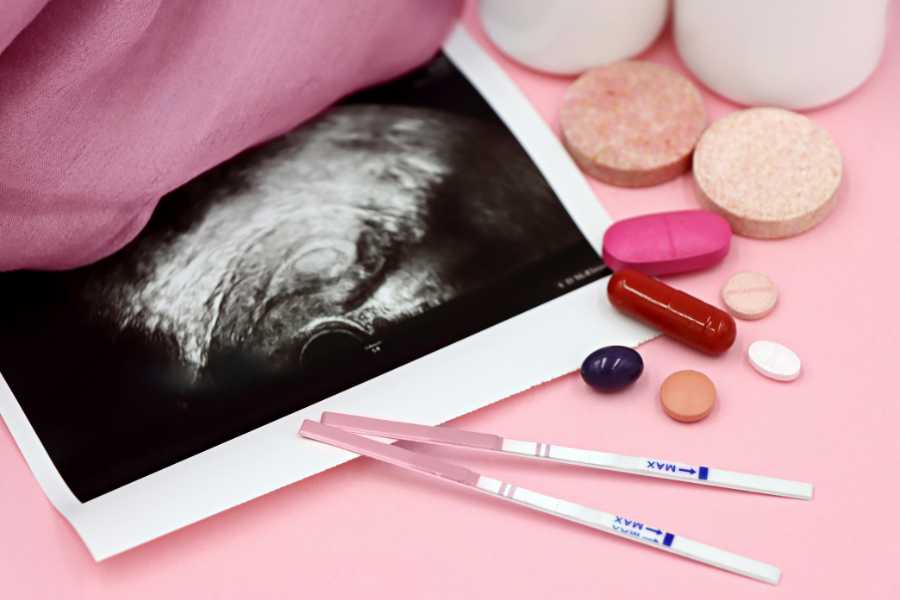When it comes to reproductive health, decisions can often be complex and emotionally charged. There are women who, when an abortion is being considered, might actually start rethinking the entire decision, thus ushering in an avalanche of questions: What is abortion pill reversal? Is it unsafe or perhaps ineffective? The significance of all these considerations will only become clear after an exploration of the definition, the procedure, possible outcomes, and safety concerns.
Understanding the Basics of Medical Abortion
Mifepristone and misoprostol are two drugs used in a medical abortion. Mifepristone blocks progesterone, a hormone needed to help maintain a pregnancy. Misoprostol, on the other hand, causes contractions for the expulsion of the fetus and bleeding. Some women may find themselves wishing to explore ways to stop or reverse the procedure after taking mifepristone.
This thought gave rise to the idea of abortion pill reversal, which is based on the idea that mifepristone can be somehow counteracted-much before misoprostol. This is usually done by the administration of varying doses of progesterone. While this subject is receiving more attention, the evidence base remains exceedingly thin, with huge divergence of opinion among individual clinicians concerning the efficacy and ethics of the procedure.
What Does Abortion Pill Reversal Mean?
Reversal of actions of the abortion pill is, in simple terms, attempts to counteract the clinical effectiveness of mifepristone; that is, a sequence of treatment, fairly commonly involving the administration of progesterone with the stated goal of nurturing any potentially surviving pregnancy and preventing any interruption thereof. Simply put: the sooner the progesterone is administered after mifepristone, the greater is the chance that it will influence the outcome favorably.
There is no guarantee, however; some women will be successful in reversing and carrying to term, whereas others will still miscarry. It is thus important for a woman to understand the expectations and uncertainty for her chosen outcome in this decision-making process.
Safety and Effectiveness: What Research Says
The safety and efficacy of reversal as a procedure are still widely contested. The proponents argue that progesterone therapy has been used for several decades to promote pregnancies; its application to this clinical situation therefore appears most logical. The opponents argue that there are no large clinical trials or studies to back the claim with uniformity.
Some studies imply that, in few cases, the pregnancy can go on after this process. Others indicate risks like heavy bleeding, incomplete abortion, and maternal complications. This uncertainty means any woman thinking about this type of reversal should keep a good chance of all mixed outcomes in mind when making a decision-no matter what her stand is.
Emotional and Psychological Considerations
More than merely medical considerations, emotional and psychological issues around abortion pill reversal also deserve an audience. Different women may experience overwhelming feelings like fear, remorse, confusion, or the faintest glimmer of hope. The choice between completing the abortion or reversing it becomes intensely personal, and women often feel trapped and deeply overwhelmed between these two very contradictory choices.
Centers like the Norman Women's Health Center and its co-sponsoring clinics often stress counseling services to help deserving women process their feelings, clarify options, and understand possible consequences. Individual support and presentation of pertinent medical information can ease a woman's journey through this harrowing experience.
Questions to Ask Before Considering Reversal
Before proceeding with any care related to the reversal of the medication, one must appropriately ask very important questions. Is there a chance of risks to be posed for maternal health? How much does the timing of this procedure affect the chances for a successful outcome? What psychological hardships could occur in either event? What do the various medical practitioners say about this practice?
Pointers in this area not just clarify the process but also set the woman up for a possible best-case and worst-case outcome. Being completely honest with her caregivers concerning how she will approach the decision will empower her to own a decision made in her own best interest.

Ethical and Social Perspectives
The big debate surrounding pill reversal has transcended whether one section of individual health care and social context. Some see it as a chance for women to gain empowerment after changing their mind with regards to abortion initiation. Others claim that limited research makes it most impossible to sustain its promotion as an effective medical intervention.
By understanding these perspectives, we also come to realize that abortion pill reversal is neither solely a medical issue nor simply a matter of ethical belief; it is also one heavily shaped by cultural views and personal conviction. Each must, to some degree, make her own reconciliation of how all of these factors interrelate with her comfort concerning the process.
Conclusion
Pill reversal therapy, as a topic, remains excessively challenging and adaptable since women will always find themselves in confusion concerning what pill reversal actually entails. Pill reversal can be termed as a form of therapy meant to oppose the action of mifepristone through the use of progesterone in order to support the continuation of pregnancy. Some reports indicate success; however, information on conclusive research makes this uncertain. Factors leading to reversal comprise not only medical realities but also emotional, ethical, and social aspects.
After accumulating all the information, asking the right questions, and finally, turning to the healthcare professionals one trusts, the best approach to such a decision-head should be as follows: Centers like Norman Women's Health Center, among so many others, emphasize that tailor-made support makes the decision very comforting and empowering for women.
Frequently Asked Questions
- What is abortion pill reversal, and how does one go about it?
Abortion pill reversal is a treatment that tries to counteract mifepristone's part in a medication abortion. Abortion pill reversal will usually be done by giving additional progesterone to support the pregnancy. Success rates differ because very little research has been done on this.
- When should one start reversal therapy?
Timing is crucial. It is commonly perceived that this process works best when started shortly after mifepristone and before misoprostol, although guarantees are not available.
- Is there a safety profile for women with regards to reversal of abortion pill treatment?
The debate regarding abortion pill reversal isn't conclusively settled. Although progesterone has been used for several years in the management of pregnancy, large-scale studies do not exist to safeguard its use in reversal. Risks due to incomplete abortion or other complications make the case much messier and thus need medical consultation.
- How can emotional support help make decisions?
Definitely. In fact, emotions can be evoked when deciding whether to pursue or decline pill reversal care. So counseling with support from loved ones as well as open communication with healthcare staff can help women in processing their feelings and developing wiser decisions.








